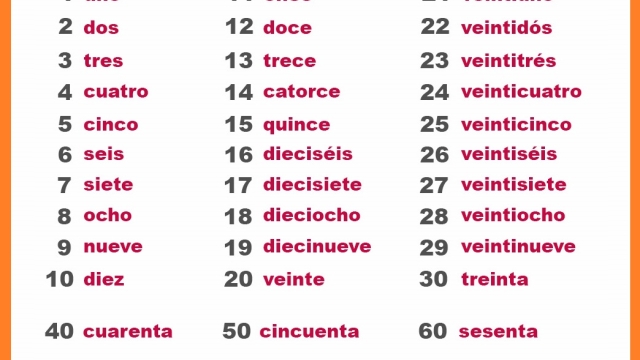
Navigating the NIE Number Maze: Your Ultimate Guide to Spain’s Identification System
Spain is a country of vibrant culture, breathtaking landscapes, and irresistible cuisine. For those dreaming of a life in this sun-soaked paradise, understanding Spain’s identification system is essential. At the heart of it all is the NIE number. But what exactly is the NIE number in Spain? In this comprehensive guide, we will navigate through the intricacies of this identification system, uncovering its purpose, the process of obtaining it, and its significance for residents and non-residents alike. Whether you’re planning to reside, work, study, or establish a business in Spain, this ultimate guide will accompany you through the NIE number maze, ensuring a smooth and hassle-free experience. So let’s dive in and unravel the secrets of the NIE number in Spain.
What is a NIE Number in Spain?
A NIE Number in Spain is a unique identification number assigned to foreigners residing or conducting any official business in the country. NIE stands for Número de Identificación de Extranjero, which translates to Foreigner Identification Number. It serves as a crucial document for various administrative, legal, and financial processes in Spain.
The NIE Number is issued by the Spanish government and is used to track a foreigner’s activities and interactions with official institutions. It enables individuals to engage in legal matters such as buying property, opening a bank account, obtaining work permits, registering for healthcare services, and filing taxes, among other essential tasks.
Having a NIE Number in Spain is mandatory for any foreigner planning to spend an extended period or engage in official activities in the country. It provides a legal and formal way of identifying individuals, allowing the authorities to regulate and monitor their presence and actions within Spanish territory.
Why is a NIE Number Important?
A NIE Number in Spain is incredibly important for a variety of reasons. Firstly, if you plan on living or working in Spain, you will need a NIE Number to legally do so. This number serves as your identification and is required for almost all official and financial matters in the country.
Furthermore, a NIE Number is essential for anyone looking to buy property in Spain. Whether you’re a resident or a non-resident, having a NIE Number is mandatory when purchasing a property. Without it, you won’t be able to complete the necessary paperwork or open a bank account to secure your investment.
Additionally, a NIE Number is crucial for anyone looking to start a business or become self-employed in Spain. Obtaining a NIE Number is one of the initial steps in the process of setting up a business, as it is required for registering for taxes and obtaining necessary permits.
In conclusion, a NIE Number is not only essential for legal purposes, but it also enables you to fully integrate into Spanish society. Whether you’re planning on living, working, buying property, or starting a business in Spain, having a NIE Number is of utmost importance.
How to Obtain a NIE Number in Spain
Obtaining a NIE (Número de Identificación de Extranjero) number in Spain is an essential step for all foreigners who plan to live, work, or study in the country. Here’s a simplified guide on how you can obtain a NIE number in Spain.
Lawyer
Book an Appointment: The first step in obtaining a NIE number is to schedule an appointment. You can do this by contacting the relevant authorities such as the National Police, Spanish consulate abroad, or through a designated immigration office. It’s important to note that the process may vary depending on where you are located in Spain or if you are applying from overseas.
Gather the Required Documents: Before your appointment, gather all the necessary documents. Typically, you will need to provide a completed NIE application form, valid passport or identification document, proof of the reason for obtaining the NIE (such as a job offer or enrollment in an educational institution), and any additional documents specified by the authorities.

Attend the Appointment: On the day of your appointment, make sure to arrive on time and bring all the required documents with you. During the appointment, you will need to present your identification documents, complete any necessary forms, and pay the corresponding fee. Once your application is processed, you will be issued your NIE number.
Remember, it’s important to start the process of obtaining a NIE number well in advance as it can take some time to secure an appointment and gather all the necessary documents. So be prepared and ensure that you have everything ready to make the process as smooth as possible.




